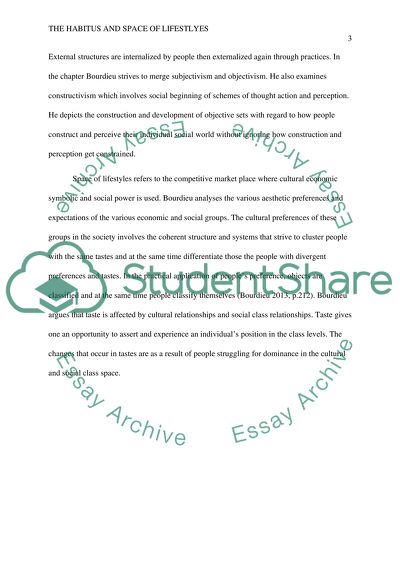Chapter review of: Dinstinction: A social Critique of the Judgement of Literature. Retrieved from https://studentshare.org/anthropology/1645196-chapter-review-of-dinstinction-a-social-critique-of-the-judgement-of-taste-by-pierre-bourdieu-translated-by-richard-nice-1999
Chapter Review Of: Dinstinction: A Social Critique of the Judgement of Literature. https://studentshare.org/anthropology/1645196-chapter-review-of-dinstinction-a-social-critique-of-the-judgement-of-taste-by-pierre-bourdieu-translated-by-richard-nice-1999.


